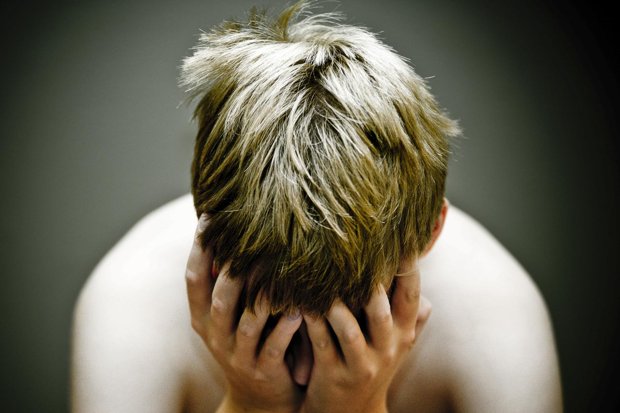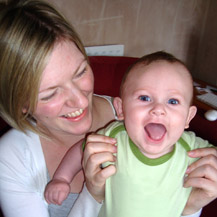Cyberworld creates sad and lonely children
 Unhappiness, loneliness, self-harm and sexting: children are suffering a crisis of confidence, according to ChildLine, as they struggle with friendships, impossible aspirations and the humiliating hazards of social media. It is no wonder that across the globe children are in need of support, with parents looking into the various ways they can get help. This can be from a child psychologist in Denver CO to a psychologist based here in the UK, children need to know that they are not alone and they can get the help they need.
Unhappiness, loneliness, self-harm and sexting: children are suffering a crisis of confidence, according to ChildLine, as they struggle with friendships, impossible aspirations and the humiliating hazards of social media. It is no wonder that across the globe children are in need of support, with parents looking into the various ways they can get help. This can be from a child psychologist in Denver CO to a psychologist based here in the UK, children need to know that they are not alone and they can get the help they need.
Low self-esteem is one of the most common reasons that children contact the charity today, in contrast with the physical and sexual abuse, teenage pregnancies and runaways that lay behind most of the calls when the helpline opened in 1986.
Colin Butler was among the stunned volunteers who were bombarded with 55,000 attempted calls on launch night, 30 years ago. He has volunteered once a week ever since, and believes that the children who call now are lonelier, unhappier and more likely to hurt themselves.
“It’s the increase in serious distress and self-harm – that’s the biggest single change,” said Mr Butler, 69, a retired deputy head teacher who makes the three-hour round trip from his home in Malvern to the ChildLine centre in Birmingham every Monday.
“I would say every shift now, there’s someone feeling suicidal. The amount of distressed youngsters is horrendous. Young people’s mental health is a car crash. They’re under such pressure to achieve, they’re stressed to death.”
The Times has been calling for the government to overhaul child mental health services with its Time to Mind campaign. Colin used to take calls from frightened children in telephone boxes, but the majority now get in touch through email or live chat on the website. The rest call from their mobiles.
Technology has made it easier for children to make contact, but Mr Butler said: “They used to be able to go home, shut the door and know ‘I won’t get bullied again until tomorrow’. Now they can get an abusive text or an unflattering picture on Facebook any time.
“They have these ideas of how wonderful their lives should be, because they see everyone else having a wonderful time. It’s a complete fiction, of course, but they are opening up these accounts before they are emotionally mature enough to deal with them.
“You can’t roll the clock back. You can’t throw all the mobile phones underneath a steamroller,” he said. “Although sometimes I wish I could.”
Two years ago, when he was 13, Ethan was struggling to settle into secondary school and found himself the subject of ridicule in a Facebook group used by about 20 children in his year. “I was feeling pretty lonely and upset,” he said. “I didn’t have any confidence to go out.”
When he wasn’t at school, the bullies sent him text messages. “It was 24/7. I felt depressed and didn’t want to go to school. I walked around by myself.”
Ethan, who is now 15, sought help from ChildLine. He found friends who were going through the same experiences, and knows now to block anybody who is abusive to him online.
Low self-esteem and unhappiness accounted for more than 35,000 calls to Childline last year. Cyberbullying accounted for nearly 26,000.
Mr Butler says that he detects a sense of hopelessness. “There’s a tremendous feeling they don’t have a future. They’re losing their confidence because they are feeling they will never get a decent job, have their own house.
“Academic achievement is stressed so much that if they don’t get a whole rack of A*s then life is over. A lot of these kids are feeling so helpless and worked up. They have low self-esteem and are harming themselves.”
Sexting is another common cause of distress, he said, recalling a 14-year-old girl whose ex-boyfriend had posted pictures of her partially undressed on Facebook. “She was thinking about killing herself because everybody knew and it was circulating,” he said. “She was terrified her parents would find out.”
A few weeks ago, he talked another girl out of jumping off a bridge. “They are the most stressful calls – you may only have a few seconds. But when you know that they are safe, and that you helped – that makes it worthwhile.”
Mr Butler intends to continue counselling, he says, until he’s “too old or too deaf” to use the headset. “After the launch, they asked me to help out for a bit, until it calmed down.
“I’m still waiting for that to happen.”
Case study
It was quite normal for Naomi to walk into the study room at school around exam time and see her classmates in tears.
The fact that she was one of the brightest pupils and expected to do well, only made her feel worse. The weight of expectation led to a downward spiral of self-harm at home. She was 15. Her confidence dropped.
“You see later that all the things you were worried about were not quite as big as they seemed, but that doesn’t make them feel any less real at the time.”
Naomi started buckling under the pressure at 14. “I was expected to do well . . . to get all A*s. I felt I could never achieve what people expected me to achieve. I didn’t feel I would ever be good enough.”
She became more introverted and started cutting herself. The turning point came when she emailed ChildLine. At her lowest point, she was in touch every other day. “Now I don’t feel as lonely any more”, she said.
“I know how much support is out there.”
Top ten reasons for calls to ChildLine
1986-87
1. Sexual abuse 6,352 2. Family 4,632 3. Physical abuse 4,180 4. Pregnancy 1,311 5. Friend problems 1,053 6. Bullying 753 7. Risk of abuse 703 8. School problem 542 9. Drug abuse 486 10. Runaway456
2014-15
1. Family 38,231 2. Low self-esteem/unhappiness 35,244 3. Bullying/cyber 25,736 4. Self-harm 19,557 5. Suicidal 17,782 6. Friendship 17,105 7. Sex/relationships/puberty/sexual health16,533 8. School/education 13,815 9. Mental health/depressive disorders 12,598 10. Sexual abuse and online sexual abuse 11,398

